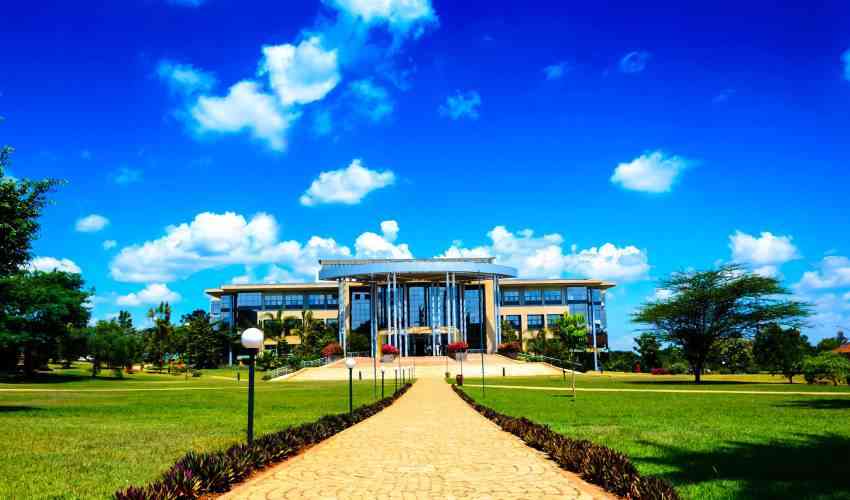The Ministry of Education has attributed low employment rates among Kenyan graduates to falling education standards in public universities.
Education Cabinet Secretary Fred Matiang’i cited the mismatch between knowledge, skills and competencies required in the market and what the universities offer among reasons employers shun Kenyan graduates.
“Youths aged between 15 and 34 form 35 per cent of the population, those who are unemployed form 67 per cent. This is an extremely high percentage of unemployment,” said Matiang’i.
The minister said most of the graduates lack timely labour market information.
In addition to these, the limited linkages between employers and training institutions have tremendously frustrated the absorption rate of graduates in the job market.
The Matiangi report reveals that between 2012 and 2015, a total of 143,262 students graduated from local public and private universities.
The number of students graduating from degree programmes in universities in Kenya has increased from 23,523 in 2012 to 49,020 in 2015.
“The question that needs to be addressed at this time is... how many of these graduates have been employed? posed Matiang’i.
The report says that there is a growing demand, from the labour market, for an increased level of skills and competencies for a modern, globally competitive and knowledge-based economy.
According to Matiang’i, this calls for continuing professional upgrading.
The report launched last week indicates that employers are increasingly preferring graduates from private universities.
University of Nairobi leads among public universities preferred by employers with 84 per cent preference.
In the private institutions category, 78 per cent of the respondents mentioned Strathmore as their preferred university, a difference of just six per cent.
While some employers preferred Jomo Kenyatta University of Agriculture and Technology with a 63 per cent preference, Daystar had 57 per cent; a difference of six per cent.
Some 45 per cent preferred Moi University graduates, same percentage point as United States International University (USIU).
Stay informed. Subscribe to our newsletter
Kenya Methodist University has 17 per cent preference just two per cent less compared to Egerton’s 19 per cent, with Mount Kenya having 13 per cent.
Others are University of Eastern Africa, Baraton that had seven per cent, African Nazarene five per cent while Maseno and Masinde Muliro University had 6.3 and 3.8 per cent respectively.
According to the survey, both parents and students preferred UoN with 49 and 24 per cent respectively.
At least nine out of 10 parents look forward to having their children in a university according to the survey.
Business administration, Education Arts, and Humanities are the three leading courses most students pursue in university.
Data obtained in 2016 from the Commission for University Education revealed that there were 3,408 academic programmes offered in all universities in Kenya.
The Matiang’i report reveals that Humanities and Arts programmes accounted for the highest proportion of programmes with 475, representing 14 per cent.
This was followed by Life Science and Physical Sciences (365) and Business-related programmes (363), both of which accounted for 11 per cent of the total number of programmes offered by universities in Kenya.
“The programmes that accounted for the least were in the disciplinary areas of Architecture (0.8 per cent), Law (0.4 per cent), and Manufacturing (0.3 per cent),” says the report.
 The Standard Group Plc is a
multi-media organization with investments in media platforms spanning newspaper
print operations, television, radio broadcasting, digital and online services. The
Standard Group is recognized as a leading multi-media house in Kenya with a key
influence in matters of national and international interest.
The Standard Group Plc is a
multi-media organization with investments in media platforms spanning newspaper
print operations, television, radio broadcasting, digital and online services. The
Standard Group is recognized as a leading multi-media house in Kenya with a key
influence in matters of national and international interest.
 The Standard Group Plc is a
multi-media organization with investments in media platforms spanning newspaper
print operations, television, radio broadcasting, digital and online services. The
Standard Group is recognized as a leading multi-media house in Kenya with a key
influence in matters of national and international interest.
The Standard Group Plc is a
multi-media organization with investments in media platforms spanning newspaper
print operations, television, radio broadcasting, digital and online services. The
Standard Group is recognized as a leading multi-media house in Kenya with a key
influence in matters of national and international interest.







